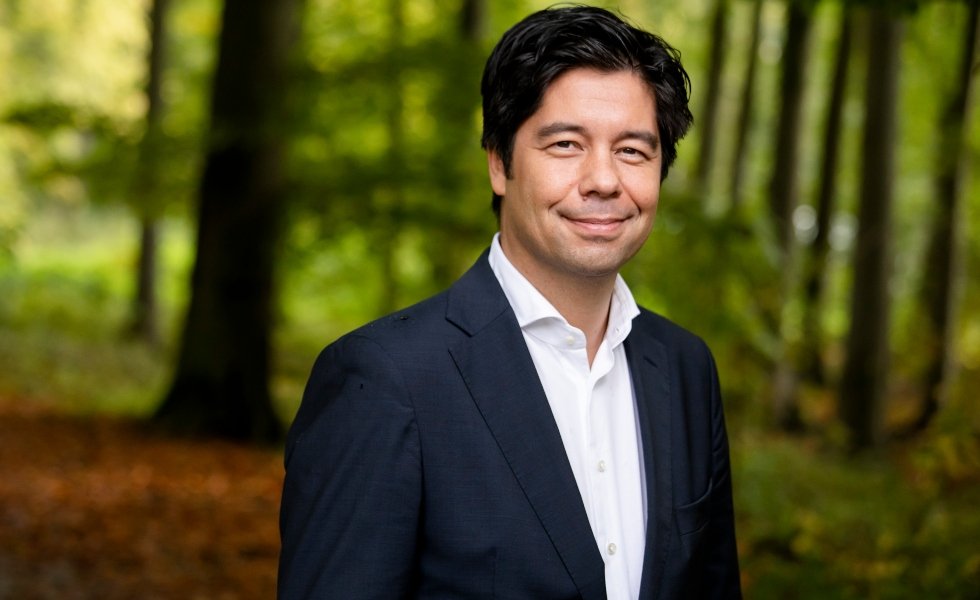San Lie: Without a free press, sustainable investors cannot do their job
San Lie: Without a free press, sustainable investors cannot do their job

This column was originally written in Dutch. This is an English translation.
By San Lie, Director of ASN Impact Investors
Press freedom has reached an all-time low worldwide, according to a report published this month by the professional organisation Reporters Without Borders. This is not only a problem for citizens; investors also need independent and reliable information on which to base their decisions.
Increasing economic pressure, physical attacks and political hostility are making it increasingly difficult for journalists to do their work, according to Reporters Without Borders (RSF) in its annual World Press Freedom Index. Many media organisations are unable to survive, or can only do so with great difficulty. In the 180 countries assessed by RSF, media outlets in 160 countries reported financial problems and significant economic pressure.
News media also monitor companies
This is a worrying development in several respects. First of all, we all benefit from fair and independent news gathering. Freedom of the press is crucial for a democracy to function. Every citizen has the right to independent information in order to make the right choices or form an opinion.
Journalists play an important role in meeting this need. News media have the right and the duty to monitor the government, politics and the business community, to investigate and to check whether proponents and opponents in important controversies are telling the truth. This ensures that people – voters, consumers – can make informed choices based on independent information.
Research from a variety of sources
But as an investor, I am just as interested in independent information. I cannot rely solely on the information provided by the Investor Relations and Finance departments, as this is rather one-sided. Independent news reports complete the picture and highlight the risks that may also have an impact on the financial results and reputation of the company in question.
As an impact investor, I benefit greatly from independent information because, in addition to financial performance (from reports that are hopefully audited by independent accountants), I also take into account the impact that companies have on the climate, biodiversity and human rights. This simply requires further research and a variety of sources. We really want to know what we are investing in, we do our own research and we certainly benefit from reliable data from third parties.
Journalists bring controversies to light
Many environmental and human rights abuses come to light thanks to independent journalists who give a voice to affected citizens and sometimes to nature itself, dare to expose ‘unpleasant’ issues and uncover matters that are contrary to our sustainability principles. These are often so-called ‘controversies’ that exist within companies and among the suppliers of companies that operate in multiple countries. Fortunately, we have data providers who monitor reports of abuses worldwide, allowing us to make our own assessments.
Just last year, thorough independent journalistic research (in this case by Follow the Money) was one of the reasons why we took another critical look at a company in our universe and ultimately removed it. Adidas was found to be sourcing cow leather for its sports shoes from deforested areas of the Brazilian Amazon, despite previous commitments to stop doing so. We were tipped off about Adidas' use of kangaroo leather by another source.
Freedom of the press under political and economic pressure
In the Netherlands, freedom of the press is enshrined in the Constitution. This is a great asset that we should never take for granted. The situation is different in many other countries. According to the World Press Freedom Index, the press can only do its work freely in 3 out of 10 countries. This is partly because politicians who are trying to restrict press freedom have come to power, for example in Russia, Hungary and Poland – the report was published before the second term of US President Trump.
The economic pressure on the media is becoming clearer every year. Tech companies such as Google and Facebook control the global advertising market, at the expense of revenues on which many media outlets partly depend. In the United States, Amazon founder Jeff Bezos bought the Washington Post and, despite earlier promises, is interfering with its content.
Trump and press freedom
The fact that Trump denies a major news agency such as AP access to his press conferences, is investigating whether CBS's broadcasting licence can be revoked and is taking other media outlets to court, makes it clear that there is a risk that the US is also sliding towards countries without sufficient press freedom.
The investigation into Adidas was conducted by the Dutch journalistic platform Follow The Money. It almost goes without saying that in countries where the media is manipulated or legally silenced by the government, less information of this kind comes to light. In those countries, investors will never know exactly what sustainability risks their investments are exposed to.
Freedom of the press and the quality of investing
Press freedom is a precious commodity. It is indispensable for society and for investors who want to truly understand an investment or company and be able to accurately assess the potential risks. The fact that press freedom is under increasing pressure is therefore not only a problem for citizens in distant countries, but also threatens the quality of our investments, here and now.
San Lie is Director of ASN Impact Investors. The information in this column is not intended as professional investment advice or as a recommendation to make certain investments.
